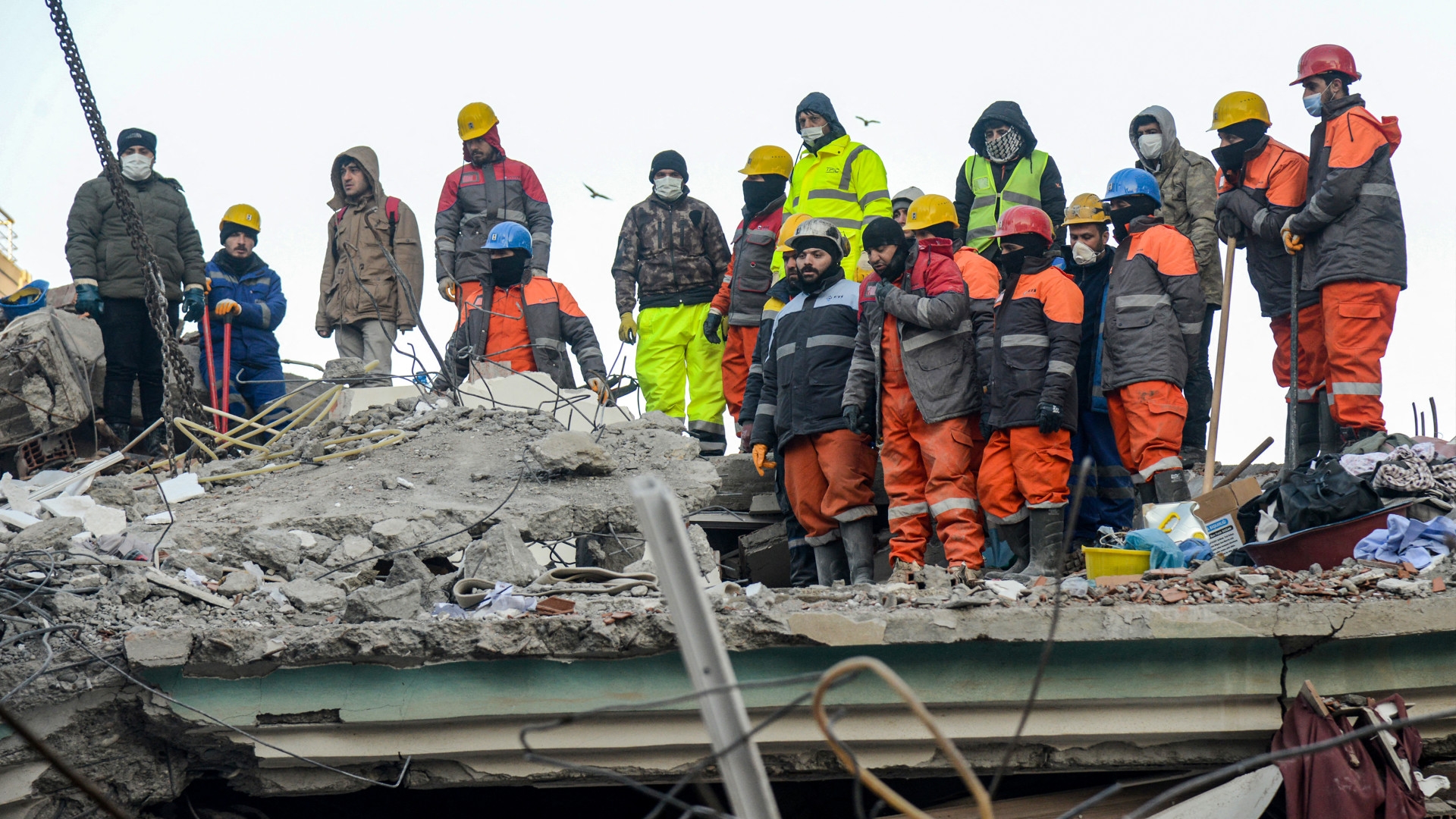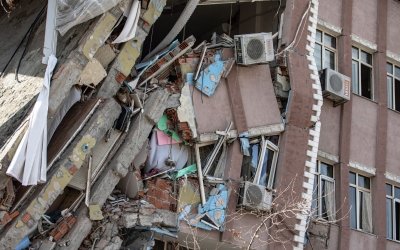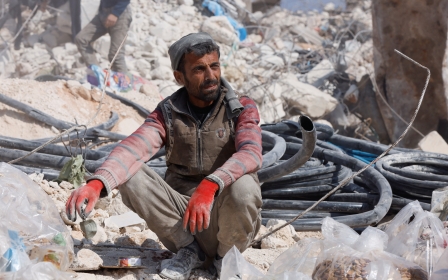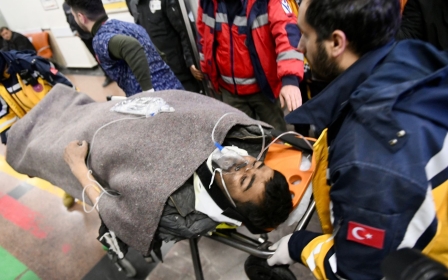Turkey earthquake: 'State ignored our warnings', say engineers and architects

The union of architects and engineers in Adiyaman, southern Turkey, has criticised the government and local administrators for remaining indifferent to their warnings about construction faults prior to the huge earthquake that struck on 6 February, saying they repeatedly requested regulations be changed.
"Despite the fact that we had issued reports about possible impacts and consequences, relevant institutions turned deaf," Ufuk Bayir, the general secretary of the Union of Chambers of Turkish Engineers and Architects (TMMOB) in Adiyaman, told Middle East Eye.
The massive earthquake and ensuing tremors have killed more than 44,000 people in Turkey and Syria, devastating more than 10,000 buildings and leaving many more uninhabitable.
"The buildings were not inspected, the statistical assessments were not made and the quake-proof tests were never conducted. Moreover, they issued an amnesty in 2018," Bayir said.
‘If the required measures were taken... we wouldn't have witnessed the death of that many people’
- Ufuk Bayir, Union of Chambers of Turkish Engineers and Architects
As part of this amnesty programme, hundreds of thousands of buildings received licences despite being incompatible with construction regulations.
New MEE newsletter: Jerusalem Dispatch
Sign up to get the latest insights and analysis on Israel-Palestine, alongside Turkey Unpacked and other MEE newsletters
In Adiyaman, more than 10,000 buildings were amnestied, particularly in the Imamaga and Yesilyurt neighbourhoods, which were devastated by the quake.
"The lack of inspections allows contractors to defy the regulations easily," said Ismail Borak, a construction engineer and member of the union in Diyarbakir, who was volunteering with rescue and aid delivery operations in Adiyaman.
"It is wrong to say that contractors and construction engineers are the only guilty ones," he told MEE. "The whole system is wrong."
Borak said the Adiyaman union has asked the government numerous times over the years to change construction regulations, including introducing a ban on assigning one engineer to multiple constructions. But the government has ignored their requests.
"If an engineer is responsible for supervising more than one building, they tend to skip many measures that take time and increase the cost," he said. "If they don't do this, the construction companies will find another engineer who doesn't utter a word when seeing wrongdoings."
In Turkey, local administrations are responsible for providing building licences, in line with the parliament-approved construction law. "The municipalities must also follow the rules," said Borak, "but their inspections are mostly perfunctory."
Government and local governorate officials did not respond to MEE requests for comment by the time of publication.
An official from the ruling Justice and Development Party (AKP) said that they had been instructed not to talk to the media.
"If the required measures were taken, and the regulations were applied precisely, the buildings would be sounder, and we wouldn't have witnessed the death of that many people," Bayir said.
'We must learn the lesson'
As well as the Adiyaman union, many universities and researchers had warned the government about a possible earthquake in nearby Kahramanmaras, one of the worst affected areas.
The Chamber of Geology Engineers wrote a report in June 2022 forecasting where the earthquake could hit and what should be done. They sent it to 18 municipalities, including Kahramanmaras, but they got no response from authorities.
The Kahramanmaras governorate and Turkey's disaster management agency, Afad, even worked on a report in 2020 that mapped the fault lines in the area, outlining how devastating an earthquake would be. Nothing was done.
The Adiyaman municipality has a cooperation agreement with the university to check local buildings. Serhat Tepe, a construction engineer and former researcher at the university, told MEE that the university had the requisite equipment to conduct inspections on buildings in the city, but that the process was postponed multiple times.
"Even the buildings that were precisely over the fault line were not checked," Bayir said, criticising the local administration.
The university could not be reached as it was closed due to the earthquake.
Bayir recently asked the government to create a better-functioning inspection mechanism so that a similar disaster would not occur in the future.
"The heads of building sites are expected to check whether a building is made in accordance with the concerning regulations or not. They are not even construction engineers. This system must change," he said.
"Now, 30 percent of Adiyaman's city centre is gone. The rest is damaged. We have lost thousands of people. We are on the brink of a humanitarian crisis. We must learn the lesson and be prepared for the future."
The Adiyaman engineers and architects union released a report on Wednesday calling on the government to conduct geological and geotechnical research in the earthquake-hit areas before rebuilding the city, and to do so in accordance with regulations.
The government has said construction will begin in March and be completed in less than a year.
This article is available in French on Middle East Eye French edition.
Middle East Eye delivers independent and unrivalled coverage and analysis of the Middle East, North Africa and beyond. To learn more about republishing this content and the associated fees, please fill out this form. More about MEE can be found here.





